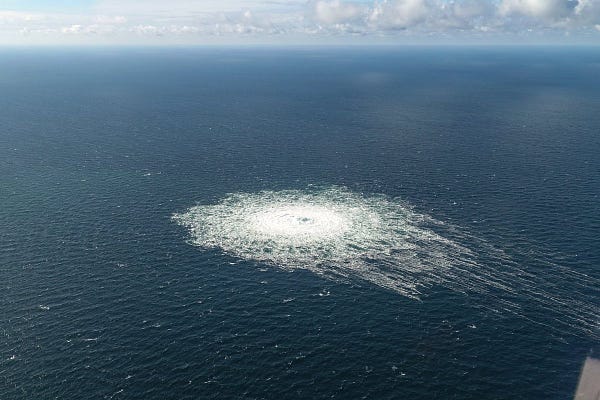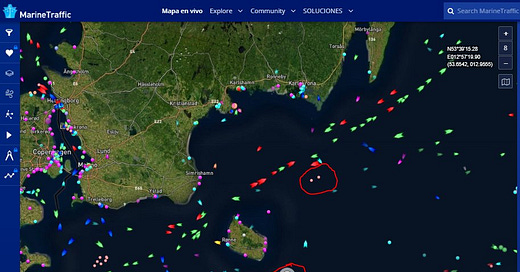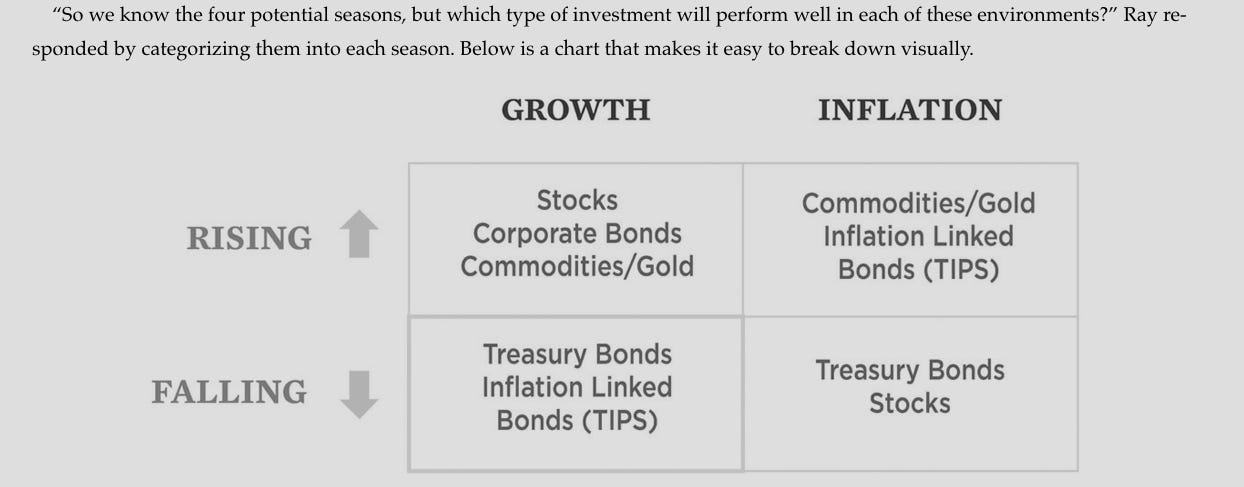Digest 5: who blew up the Nord Stream pipelines? What does Bridgewater think the Fed is going to do? The most inspiring school principal...
Who blew up the Nord Stream pipelines?
Slightly conspiratorial question to begin, but we should be allowed to ask this type of thing.
Firstly, attacks were so numerous they were clearly no accident:


Jeffrey Sachs (60 seconds):
This clip from Biden (7 Feb 2022) is interesting:

And being asked about the pipelines the day after they were attacked, this is a strange reply, even by Biden standards:
Those suggesting the U.S. were somehow involved think Russia could retaliate with going after undersea internet cables:

Von der Leyen has emphasised this threat in a keynote address herself (10 October 2022):
Let me begin with the physical infrastructure that underpins connectivity. The acts of sabotage against the Nord Stream pipelines have shown how vulnerable our critical infrastructure is. Pipelines and underwater cables connect European citizens and the companies across the world. They are the lifelines of financial markets and global trade. And they are essential for services such as modern healthcare, for example, or energy. Submarine fibre-optic cables carry 99% of global internet traffic. And now, for the very first time in modern European history, this infrastructure has become a target. So the task ahead of us is clear: We need to better protect our lifelines of the world economy.
Lastly:




Why would Putin blow up his own pipelines?
Steve Hsu + Jeffrey Sachs on Intelligence secrecy and gaslighting generally
(They’re talking about origins of Covid to begin for ~five minutes. Nordstream points are reiterated immediately after, if of further interest.)
Greg Jensen, Bridgewater Chief Investment Officer
All clips from interview with Grant Williams (paywall).
What does he think the Fed is going to do?
What does a balanced portfolio look like?
Compare this with portfolios of the past 40 years:
Gold?
The Fed’s dilemma captured well here:
The moral courage of Elon
The below tweets caused a bit of a media storm. Have you actually read them?





Rather than suggest Elon is siding with Russia (clearly he’s not), or saying he’s arrogant/out of his depth on geopolitics, who in the world of foreign affairs has a better plan than this?
Stewart Brand on climate change
From We Are As Gods:
Does the world’s most iconic tech-conservationist eat meat? (Something I’ve considered the merits/ethics/environmental impact of via a summary of the book Sacred Cow in recent months.) From a 2009 profile:
This does not look like a Whole Earth kind of meal.
Stewart Brand walks into his neighborhood diner in Sausalito and his waiter already knows the order: burger with bleu cheese, milk shake, chips and guacamole. The lone vegetable is a helpless-looking portion of red onion. Brand attacks most of the above with a salt shaker, as if the sodium can’t shower down on his plate fast enough.
“There was one angry person in Portland, a shouter,” Brand says, recalling a recent book-tour stop. “‘Do you eat meat?’ she said. ‘Yes,’ I told her. ‘At every possible opportunity!’”
Brand sees bad times ahead; his suggestions to avoid an all-out climate cataclysm include more nuclear power, and food growing in skyscrapers as well as farms. He believes environmentalists must radically change their thinking.
The economic downside of striking oil (Bismarck Brief)
…rapid expansion in oil production led to a strong case of “Dutch disease.” This is the phenomenon where hydrocarbon exports raise a currency’s value and thus make exported-oriented manufacturers less competitive internationally, as the Dutch originally found when they began extracting natural gas in the 1950s.
Between 1979 and 1986, manufacturing in Britain as a share of GDP fell from 25% to under 20%, in part because oil exports strengthened the British pound and hurt exporters. The U.K. failed to learn any lessons from the Dutch example and so the oil boom had negative effects on much of industry.
The British government’s most notable failure has been not establishing an analogue to the Norwegian sovereign wealth fund, which succeeded in capturing the value of hydrocarbon extraction without negatively impacting the rest of the economy and gave Norway a valuable reserve of wealth to invest in the global economy and withdraw from in times of crisis. This was not because the idea had not occurred to British elites.
Ending on a positive note…
This is a really, really cool video:
Plus for 1 minute:
*
Thanks for reading. If you know one person who might enjoy this, please share it on.






